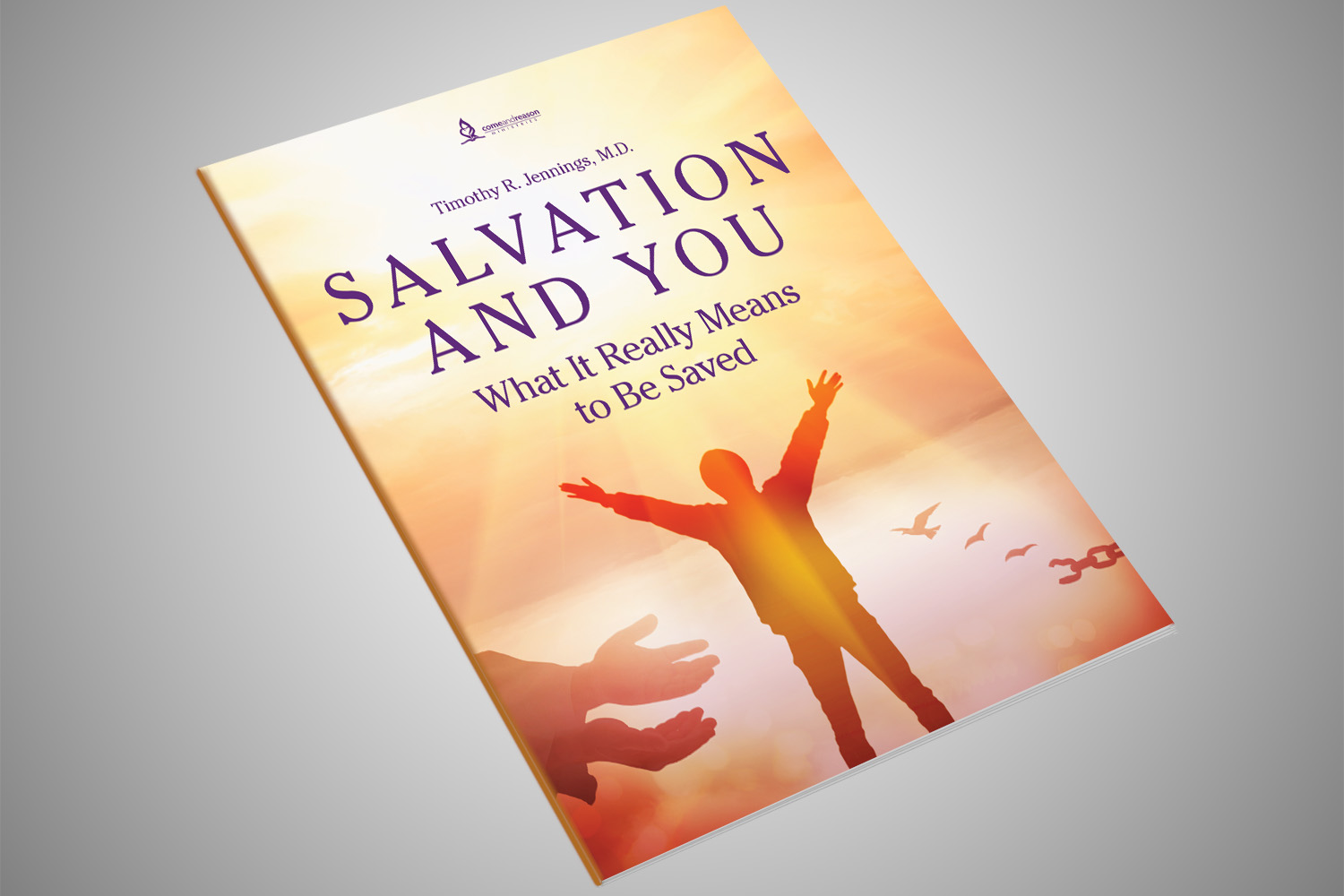Have you ever sung the old Christian hymn There Is Power in the Blood? Consider the first verse and refrain:
Would you be free from the burden of sin?
ThereŌĆÖs powŌĆÖr in the blood, powŌĆÖr in the blood;
Would you o’er evil a victory win?
There’s wonderful powŌĆÖr in the blood.┬Ā
Refrain:
There is powŌĆÖr, powŌĆÖr, wonder-working powŌĆÖr
In the blood of the Lamb;
There is powŌĆÖr, powŌĆÖr, wonder-working powŌĆÖr
In the precious blood of the Lamb.
Have you ever had to explain to someone who wasnŌĆÖt raised a Christian what these lyrics mean?
Is there power in the blood of Jesus? If you said ŌĆ£yes,ŌĆØ do you mean the red corpuscles?
If we could find a piece of ChristŌĆÖs burial cloth (which some allege is the Shroud of Turin) stained with His dried blood, would we obtain divine power to overcome sin? Is the power of God found in dead blood cells?
Jesus said the following to the Jews in Capernaum:
ŌĆ£I tell you the truth, unless you eat the flesh of the Son of Man and drink his blood, you have no life in you. Whoever eats my flesh and drinks my blood has eternal life, and I will raise him up at the last day. For my flesh is real food and my blood is real drink. Whoever eats my flesh and drinks my blood remains in me, and I in him. Just as the living Father sent me and I live because of the Father, so the one who feeds on me will live because of me. This is the bread that came down from heaven. Your forefathers ate manna and died, but he who feeds on this bread will live foreverŌĆØ (John 6:53ŌĆō58 NIV84, emphasis mine).
When Jesus said these words, was He speaking about cannibalism? The Jews apparently thought so and were offended.
What about todayŌĆöwhat do we understand ChristŌĆÖs words to mean?
┬Ā
The Metaphor
Is the power in the literal blood, or is the power in the One who shed His blood? And if the power is not in the literal blood, then what does the blood represent? How does one access the power?
The flesh and blood are symbolic of something else, and if we fail to understand the reality to which JesusŌĆÖ symbolic language is pointing, we are vulnerable to believing in the idea of Jesus, engaging in religion, and church but being devoid of the actual power of God. The apostle Paul warned that at the end of time, this would be the case and that we would need to be on guard:
But mark this: There will be terrible times in the last days. People will be lovers of themselves, lovers of money, boastful, proud, abusive, disobedient to their parents, ungrateful, unholy, without love, unforgiving, slanderous, without self-control, brutal, not lovers of the good, treacherous, rash, conceited, lovers of pleasure rather than lovers of GodŌĆöhaving a form of godliness but denying its power. Have nothing to do with them (2 Timothy 3:1ŌĆō5 NIV84, emphasis mine).
People with a ŌĆ£form of godliness but denying its powerŌĆØŌĆöwhat does this mean? It means they do not deny the formsŌĆöthe formulas, rituals, ceremonies, symbols, sacramentsŌĆöthey deny the power. In other words, they do not deny the ŌĆ£power in the blood,ŌĆØ they do not deny the symbol, communion ceremony, the Eucharist, or singing the song. But they do deny the truth, the reality, the actuality, the experience, the internalization of the life of Christ, for the Bible tells us that the life is in the blood (Leviticus 17:11). The power that is in the blood is the power of the life of Christ, not His red corpuscles. And the life of Christ is the lived-out truth of God that exposes and refutes the lies of Satan and wins us back to trust. This is represented by the flesh:
In the beginning was the Word, and the Word was with God, and the Word was God. ŌĆ” The Word became flesh and made his dwelling among us. We have seen his glory, the glory of the One and Only, who came from the Father, full of grace and truth (John 1:1, 14 NIV84, emphasis mine).
Jesus is God in humanity, and in Him is revealed the truth about God. He is the living Word of God. To eat His flesh means to take into our hearts and minds the truth about God that dispels the lies and wins us to trust. This is the eternal gospel, the eternal good news, that God is not like Satan has alleged, that God is not an imperial dictator who makes up rules and then uses His infinite power to inflict torture, pain, and death upon rule breakers. In Jesus, we see the majesty and glory of God revealed, that although He had all power, He never used it to advance self but only and always to serve. And even when the grossest evil and most abusive injustice was being perpetrated upon Him, He still would not use power to take freedom away from His intelligent creatures.
Why not? Because what God wants is our love, trust, loyalty, devotion, and friendship, and these can never be achieved through law and law enforcement, but only through truth, love, and freedom. In fact, any attempts to promote love through external enforcement, through punishment, only destroy love and incite rebellion. Thus, the power of God, the power in the blood, is the power of the truth and love of God fully revealed and lived in the person of Jesus Christ. This is the good news, this is the gospel, and this is the power of God that we may freely receiveŌĆöjust as Paul wrote:
I am not ashamed of the gospel, because it is the power of God for the salvation of everyone who believes: first for the Jew, then for the Gentile. For in the gospel a righteousness from God is revealed, a righteousness that is by faith from first to last, just as it is written: ŌĆ£The righteous will live by faith.ŌĆØ (Romans 1:16, 17 NIV84, emphasis mine).
The power is in the good news about God that destroys the lies and wins us to trust; this is partaking of the flesh, which is symbolized by the bread. And once we partake of the truth and are won to trust, we open our hearts and the Holy Spirit brings us the life of Christ, which is symbolized by the blood. We receive a new life, a new identity, a new animating powerŌĆöthe pure, holy, righteous, life of love for God and others, which is the life (blood) of Jesus. As Paul wrote, ŌĆ£It is no longer I that live, but Christ lives in meŌĆØ (Galatians 2:20). We become partakers of the divine natureŌĆöthe nature of love (2 Peter 1:4).
┬Ā
Applying the Metaphor
So how this works in day-to-day, practical life is that the Holy Spirit brings truth to human hearts and minds in ways we can understand that truthŌĆötruth essential for our healing and salvation, truth that leads us away from sin-sickness and back to Jesus for eternal life. This truth will always include truth about God, what Jesus has done, GodŌĆÖs methods and principles, but it will also include real-world, practical, applicable actions that each of us needs to take in our lives to experience healing of our hearts and minds.
We must first know that God is love, that He loves us, and that through Christ, He provides everything we need for our healing and restorationŌĆöand that with Jesus, our case is never hopeless. Then in that love, in the truth of who God is, the Spirit of truth will bring to our minds the truth about ourselves, where in our lives we are out of harmony with God, of things or people in our lives that are destructive, along with the truth about what is healthy and what choices we can make to harmonize our lives with the good, the right, the healthy.
We will find ourselves in various circumstances and situations in which some truth will be before us and we will know what our duty is; we will know what the right and healthy action is, and then the Holy Spirit will leave us completely free to decide what we will choose to do, choose to believe, choose to internalize into our heart.
And this is the key to accessing the power of God: We do not receive divine power to succeed until we choose to say yes to the truth and apply it to our lives.
However, it is not the truth comprehended, cognitively understood, that matters; it is the truth chosen by the individual to be taken into the heart and applied by the will to the life that opens the individual to receive the divine power of GodŌĆöthe animating, motivating, and transforming power of God.
The demons believe the truth of who Jesus is, but they have closed their hearts to the truth and do not love and trust Jesus; thus, their cognitive awareness of the truth has no saving power for them.
Many addicts accept the truth that they have an addiction, even that the addiction is harmful and that their lives would be better if they were free of the addiction, but they have not made the choice to get into recovery, to surrender their lives to Jesus Christ. Thus, many will pray for deliverance from their addiction, but what they are actually doing is praying for God to change them before they have chosen for themselves to give up their addiction. They are praying for their feelings to change, for the power of God to deliver them from something to which they are still clinging in their heart. They have not yet chosen in their own heart to say yes to Jesus and die to the old ways. We do not get the power until we make the choice. But when we make the choice to say yes to the truth, we are never left to win the battle in our own power; the power to succeed is always supplied by God through the indwelling Holy Spirit, but that power only becomes accessible to us when we choose to follow and apply the truth by our choice.
So I encourage you to choose to spend time with Jesus every day, to internalize (ingest) His Word into your heart and mind and to daily invite the Holy Spirit into your life to empower you with the life, the love, the motivation, the power of Jesus and, moment by moment, choose to do what you know is the right, healthy, loving, truthful action that is your duty in governance of yourself. For the power is in the truth and love that comes only from Jesus, and we receive that by our choice to trust and to act in that trust upon the truth we know and understandŌĆöit is then and only then that we receive the divine power to succeed.
┬Ā









 using your credit or debit card (no PayPal account needed, unless you want to set up a monthly, recurring payment).
using your credit or debit card (no PayPal account needed, unless you want to set up a monthly, recurring payment). instead?
instead?